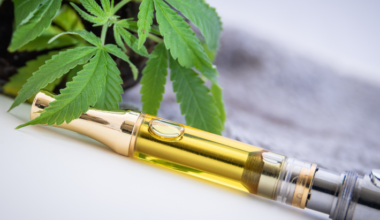Hemp advocates are nervous Illinois could be the next state to ban to ban intoxicating hemp THC products.
Tensions are high after Illinois Gov. JB Pritzker recently threatened to issue an executive order banning the products after state lawmakers failed to pass regulations, Axios reported.
Pritzker, who’s been a reliable ally of the state’s $2 billion regulated cannabis industry, said his intent is to push lawmakers to establish regulations for hemp-derived THC products.
But if they can’t or won’t, he’ll step in and ban, he warned last week.
That would follow the lead of California Gov. Gavin Newsom, who issued an executive order banning hemp-derived THC last year.
Will Illinois ban hemp-derived THC?
Both state and federal lawmakers are taking a harder-line approach to the hemp-derived THC products that have proliferated across the country since the 2018 Farm Bill.
However, efforts to either ban or regulate in Congress have failed, leaving the problem to the states.
Wisconsin Republicans recently floated a ban on intoxicating hemp-derived THC products, including synthetically derived delta-8 and delta-10.
The lack of age restrictions and marketing that critics claim is aimed at children have both sparked debate at the Chicago City Council, Axios reported.
Some aldermen have floated the idea of banning the products in their wards.
Popular THC beverage makers want regulation
Hemp industry advocates and entrepreneurs say they want to be regulated.
Jake Bullock, co-founder and CEO of hemp-derived THC drink brand Cann, says there’s a big difference between his company’s products and the synthetic edibles found in gas stations and corner stores.
“We’d like to see a smart, sensible regulatory bill that restricts these products to certain channels, keeps them away from minors and restricts the potency of these products,” he told Axios.
Medical Disclaimer:
The information provided in these blog posts is intended for general informational and educational purposes only. It is not a substitute for professional medical advice, diagnosis, or treatment. Always seek the advice of your physician or other qualified healthcare provider with any questions you may have regarding a medical condition. The use of any information provided in these blog posts is solely at your own risk. The authors and the website do not recommend or endorse any specific products, treatments, or procedures mentioned. Reliance on any information in these blog posts is solely at your own discretion.






